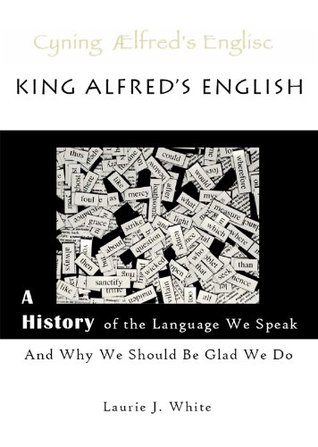More on this book
Kindle Notes & Highlights
Read between
April 15 - April 23, 2023
A language is somewhat like a card game. It consists of vocabulary and grammar. The vocabulary is the deck of cards, and the grammar is the rules for the game. The deck is useless by itself because without some rules no game is possible. And just as knowing the rules makes playing the card game possible, knowing grammar makes communication possible.
Thy was used before words beginning with a consonant, and thine was used before words beginning with a vowel, the exact same way we use a and an today.
The gleaning of Latin words during these early Anglo-Saxon days was not some one-time thing. From this point on, and for well over a thousand years, Latin was the language which all highly educated men used when they were writing their highly educated treatises. So, new Latin words just kept on coming. That’s why so many of our scientific and medical terms are Latin. Latin even became an international way of communicating among scholars.
By this time, it was obvious that Alfred had wonderful qualities of leadership, courage, and vision, and there was a general desire among the English to unite under his rule. Thus, he became the very first king of all England. He also became known as Alfred the Great, the only English king to be designated as such.
Trained as a scholar, Alfred encouraged learning, promoted schools, and most important of all for our study, he promoted English. He wanted the various English tribes to feel unified, and what better way to do that, he thought, than to publish a history of England in English not Latin. He knew that encouraging pride in their common language and in the history of their island home would certainly promote a feeling of national pride and oneness among the people.
There are around eighty sounds we humans make and use for our various languages. Interestingly, English uses only forty of these.
truth is dangerous, and freedom almost always comes with a price.
The capital letters were in one tray and the non-capitals, or little letters, in another. The little letters were used more often, so their tray, or case, was kept down low where it was slightly handier and easier to reach. The capital letters went in the upper, or higher, case. That’s why capital letters are called upper case letters and small letters are lower case. The terms come from the early days of printing.
bringing a language into print slows down changes in spelling more than changes in pronunciation.
Before the advent of print, there was no fixed, standard way to spell English words. Everyone pretty much spelled words however they said them. Pronunciations varied from one area to the next and this led to some interesting differences in spelling.
From Caxton’s press in 1476 to our time, some pretty definite spelling changes have taken place, but spelling changes became like the slow movement of a glacier. In contrast, changes in pronunciation didn’t slow down quite so much. Thus, we spell knight with that k and gh while no longer pronouncing those letters. The spelling of the word became standardized while pronunciation moved ahead.
The printing press was invented at the very end of the Middle Ages, and the Middle Ages is where much of our spelling remains.
Interestingly, the Roman Catholic Church preserved the greatest number of New Testament manuscripts, but the Greek Orthodox Church of the Byzantine Empire preserved the oldest.
fact, if you want to build your English vocabulary, just memorize the fifty or so most commonly used Greek and Latin root words.
Much of the beauty of the later and better-known King James Version of the Bible comes directly from Tyndale. In fact, in recent years, because of the precision of computer analysis, scholars have begun to understand the full extent to which Tyndale’s translation actually ended up in the King James Bible. Analysts now say as much as 80% of the entire King James Bible is pure Tyndale, and the King James Version New Testament is fully 90% the work of this one man.
The more words you have from which to choose, the richer and more precise will be your choices.


